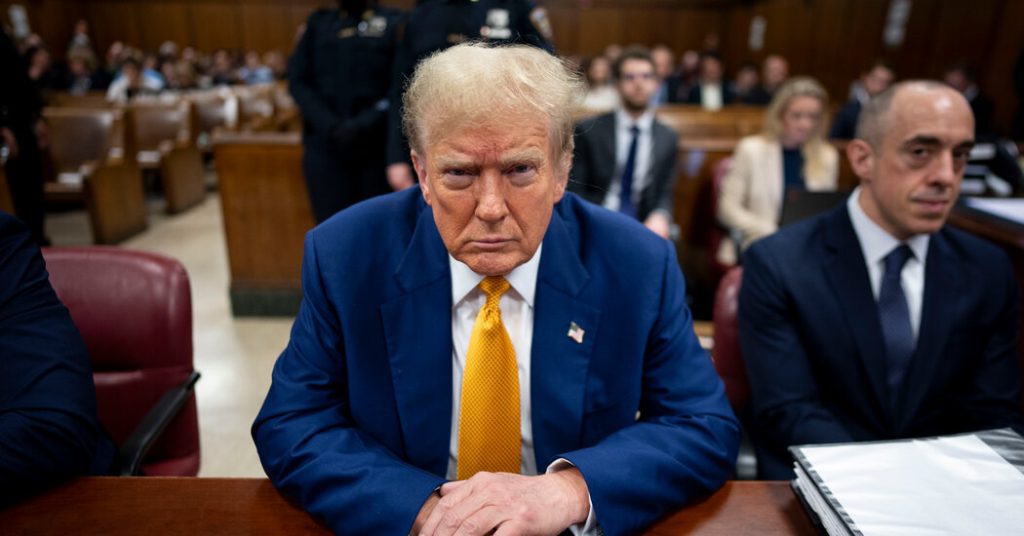A New York judge, Juan M. Merchan, upheld Donald Trump’s criminal conviction for falsifying business records but signaled his intention to impose a lenient sentence, likely an unconditional discharge. This unusual turn of events finds Trump, a convicted felon, on the cusp of his second presidency, a historic and unprecedented scenario. The sentencing is scheduled for January 10th, with Trump expected to appear either in person or virtually. An unconditional discharge, unlike a conditional one with stipulations, would allow Trump to avoid jail time, probation, or other restrictive measures, essentially minimizing the consequences of his conviction while still formally labeling him a felon. Justice Merchan justified this decision as the most viable solution to finalize the case while allowing Trump to pursue appeals.
The judge’s decision comes after rejecting Trump’s various attempts to dismiss the case. Firstly, Trump argued that his election victory should nullify the conviction, a claim that Justice Merchan firmly rebuffed. Secondly, the judge dismissed Trump’s assertion that the conviction violated a Supreme Court ruling granting presidents broad immunity for official actions. These rulings effectively dismantled Trump’s legal strategies, solidifying the historic first criminal conviction of an American president and denying him the chance to clear his record before re-entering the White House. Justice Merchan underscored that dismissing the indictment would undermine the rule of law, contrary to the principles of presidential immunity established by the Supreme Court.
While the judge has indicated leniency, the sentencing is not yet set in stone. Trump’s legal team could request an emergency stay from an appeals court, which could rule swiftly. Alternatively, given the judge’s indication of an unconditional discharge, Trump might choose to accept the sentence and proceed with appeals during his presidency. This approach would offer him the potential benefit of appealing to the Supreme Court, where a conservative majority, including three justices he appointed, might be more receptive to his arguments. Trump’s spokesman, Steven Cheung, emphasized the need for Trump to focus on the presidential transition and duties, calling the case a “witch hunt” and suggesting that there should be no sentencing.
An unconditional discharge would be a highly unusual outcome in this landmark case. A review of similar convictions in Manhattan reveals that other defendants typically receive harsher penalties like jail time, probation, or fines, rather than an unconditional discharge. The lenient sentence in Trump’s case reflects the practical challenges and potential constitutional crises that could arise from imprisoning a president-elect or sitting president. This outcome represents a dramatic shift in Trump’s legal fortunes. Facing four criminal cases last year, each with potential for significant prison time, he is now likely to avoid any incarceration due to his re-election.
The unique circumstances surrounding Trump’s case have led to the dismissal or disruption of other legal proceedings against him. The special counsel overseeing two federal cases against Trump dropped the charges, adhering to the Justice Department policy against prosecuting sitting presidents. In Georgia, where Trump faces charges related to election interference, the case is in disarray after the disqualifying of the prosecuting attorney. The Manhattan case, however, progressed to a conviction before Trump regained the presidency. Despite Trump’s lawyers requesting the Manhattan district attorney, Alvin L. Bragg, to drop the case after the election victory, citing the need for a smooth presidential transition and the Justice Department policy, Bragg refused, arguing that dismissing the conviction would damage public trust in the justice system.
Trump’s lawyers further argued that the case should be dismissed to avoid distractions from his presidential duties, citing a 1963 law emphasizing a smooth transition and the Justice Department policy against prosecuting sitting presidents. They pointed to the special counsel’s decision to drop the federal cases as precedent, even though Trump was indicted before taking office. However, the Manhattan case differs significantly, having already resulted in a conviction. Furthermore, the special counsel dropped the charges “without prejudice,” allowing for their reinstatement after Trump leaves office. The applicability of the Justice Department policy to local prosecutors and to a defendant convicted before assuming office remains unclear. Justice Merchan argued that precedent doesn’t allow a president to retroactively dismiss prior criminal acts or grant blanket immunity to a president-elect. The judge emphasized that the policy against prosecuting a sitting president is a temporary immunity, not applicable before or after the presidential term.


